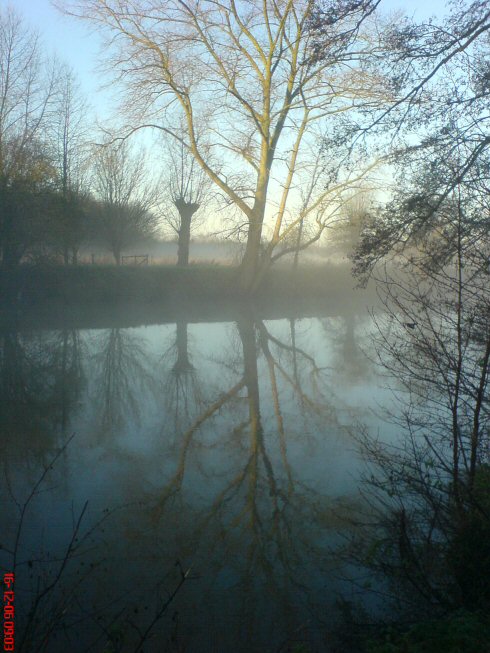
For the most part the Bristol Avon slides between the banks of its lower reaches like an oiled great grey green snake. Often lazy, and sometimes moving so slowly that you need to concentrate to see that it actually is alive and breathing. Occasionally, though thank God not often, in flood, when it becomes a fury of undivertible destruction and is rightly feared by man.
This westbound river slipped past us as the end of our garden dipped its toe in its waters. From being prohibited, it grew gradually familiar and as confidence grew our playmate in the summer and a transport that no road would ever match.
While taught to swim in the Chippenham outdoor lido it was made abundantly clear that my junior skills were no match for the river. And for many years it remained so. The way barred by a hedge and some improvised but sternly forbidding fence of thick galvanised wire. The way down only ever endorsed when hand in hand with my mother or father. A small gap in the hedge gave way to a run down wooden landing stage, overhung by a small greengage tree. Dressed in a strange smelling yellow plastic life jacket, we would be allowed on the calmest days of summer to peer in to the depths and reflect upon the monsters that lay within. The cool deep water called a siren song to me. Leaning ever further with a stick to probe its mystery, steadying myself with the lower branches of the tree, it seems no wonder then that my mother never let us stay there for long.
That particular stretch of the river, the reach between Saltford lock and the bridge where the old Mangotsfield and Bath railway crossed it below near Bitton was the part I knew best back then.
In the early sixties, the industrial pollution that had been a natural part of life along its banks for over two centuries was just coming to an end and with this end a new era of leisure.
Not gone yet though. Once or twice a day we could still see commercial transport barges huffing and puffing up to the lock bringing less perishable loads from the Bristol dock heading for the city centre in Bath. Later they returned, gliding back more at ease with the current, lighter of their load. There was no obvious return cargo.
Tar barges was the most popular supposition among the children of the village, no doubt mentioned once in an offhand way by one of our parents. Standing at the end of the garden we would shout and wave across the river as vessels were tied alongside the path to the island in the river, prior to being swallowed up in the inexplicable but somehow essential lock. Occasionally we received an answering wave. What they did with all that tar when it got upstream we never knew. Perhaps it was instead coal for the Bath gas works. Who knows. As they passed on through, these diurnal visitors left a sheen of oil and a faint smell of diesel exhaust in their wake, adding little of value to the already far too infected waters.

1 comment:
What a pleasure it is to follow you down memory lane, especially to glimpse such eerily beautiful views.
Post a Comment